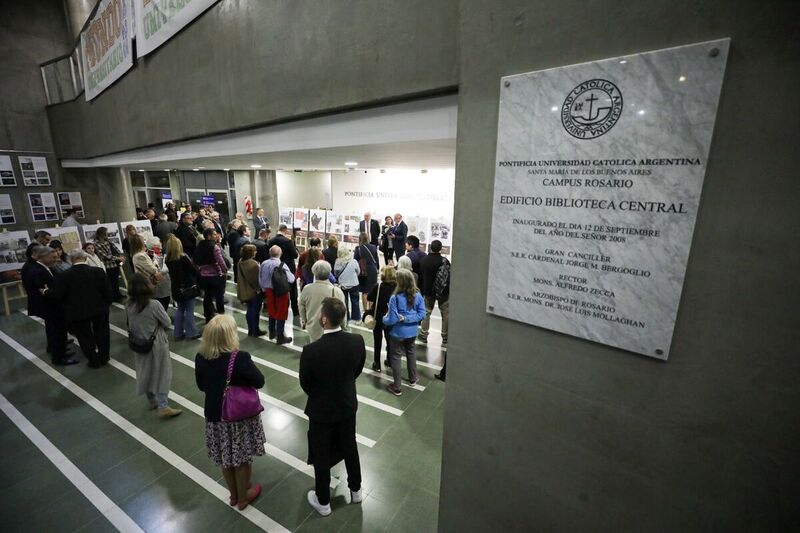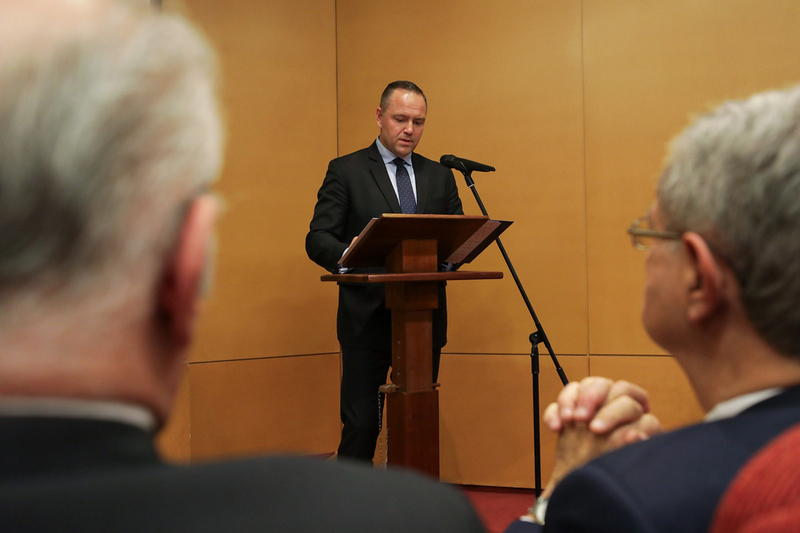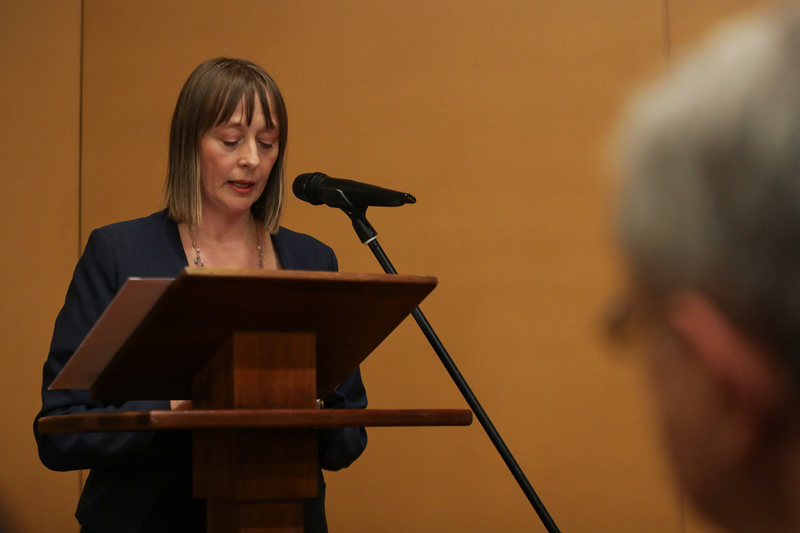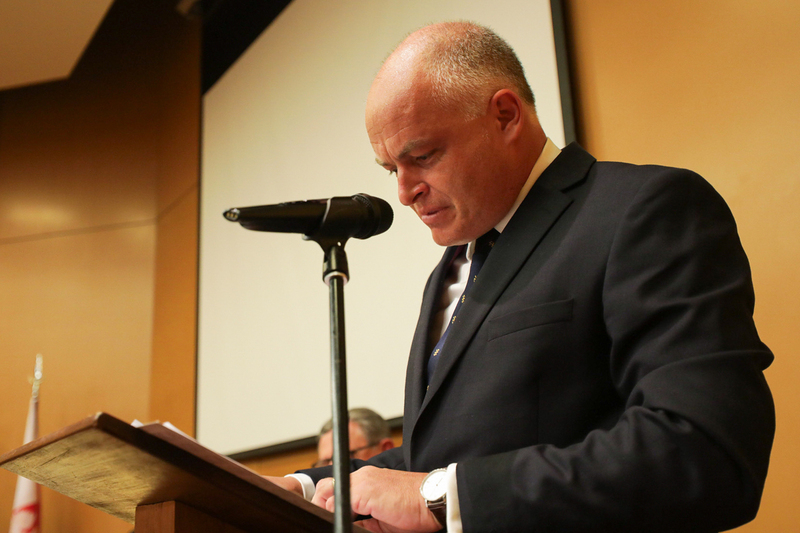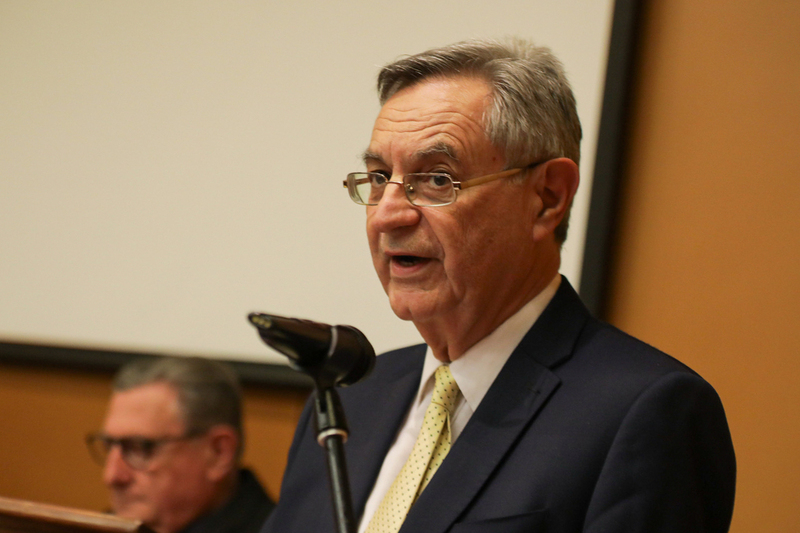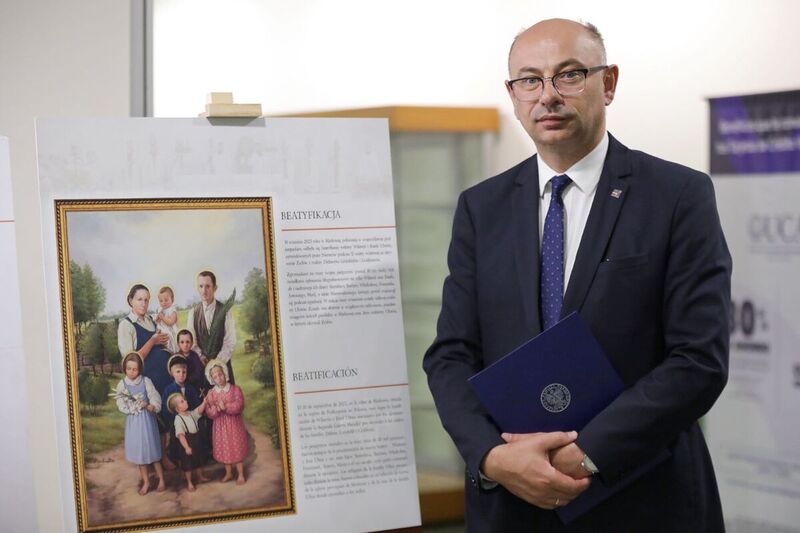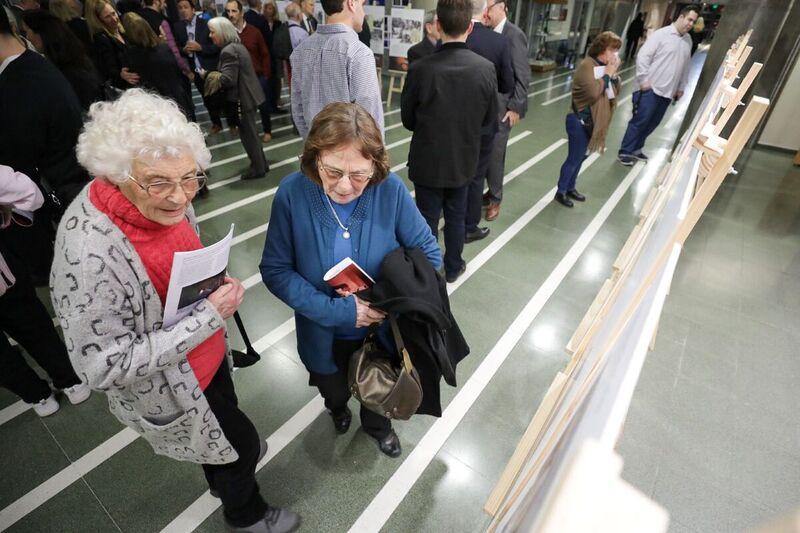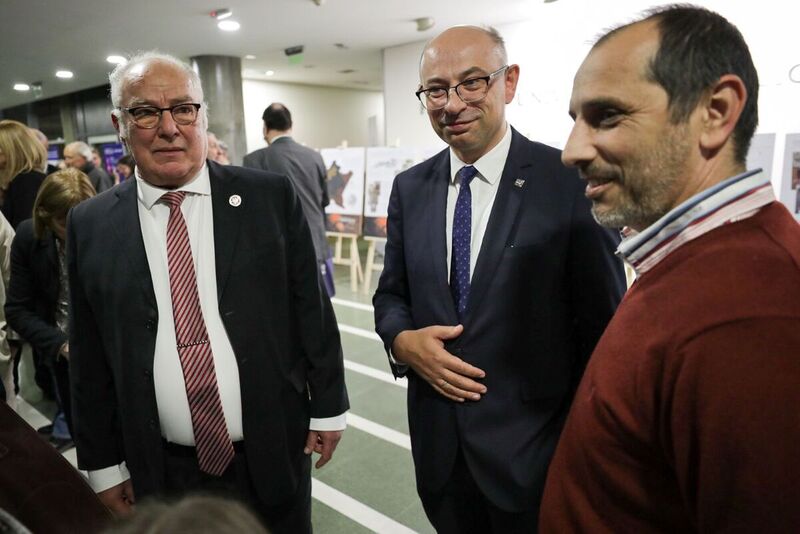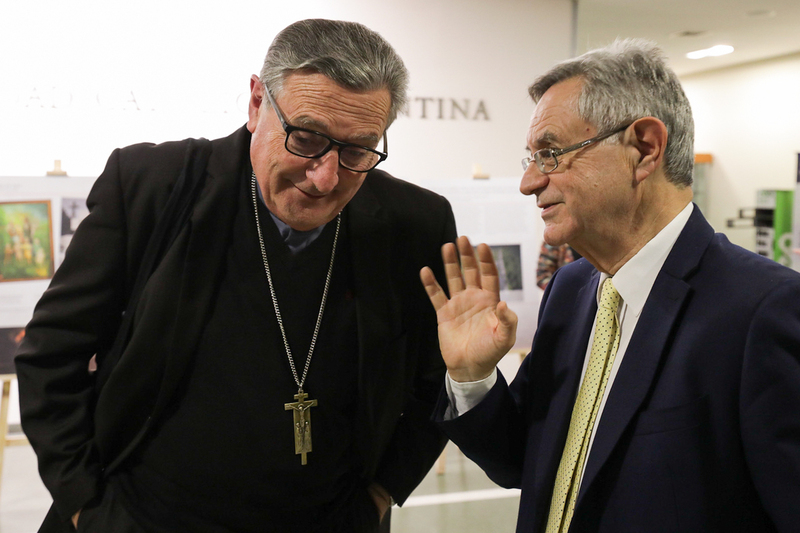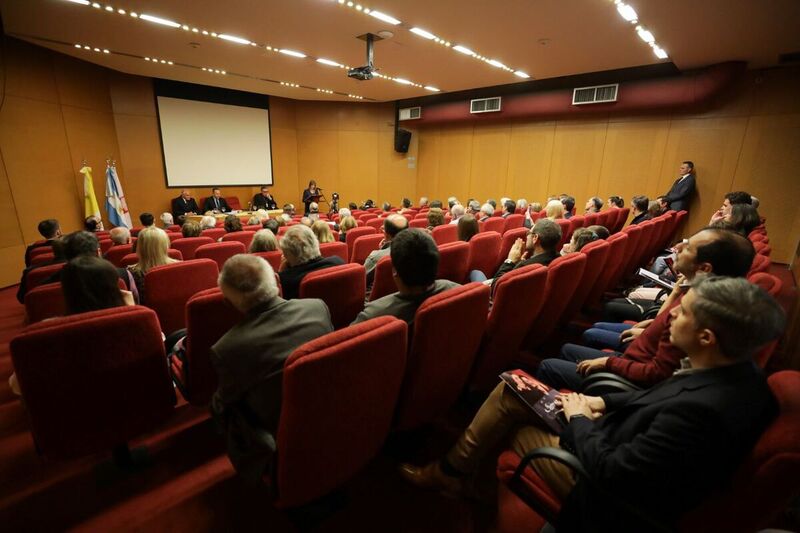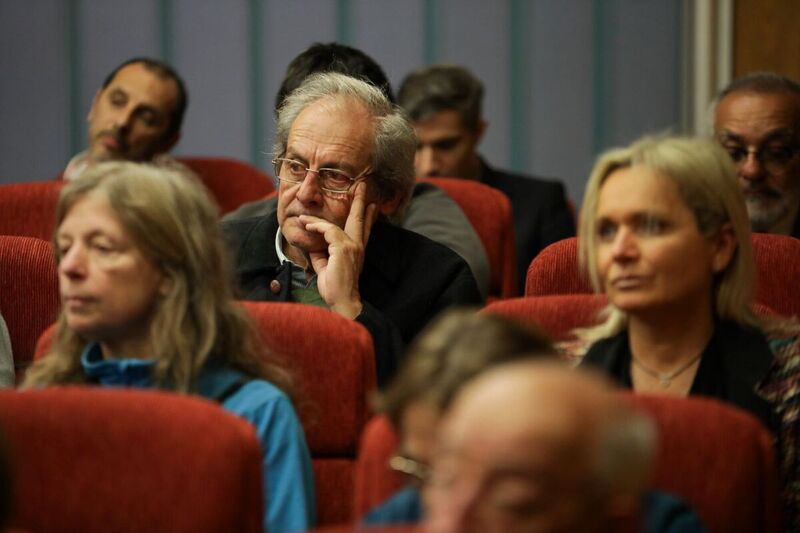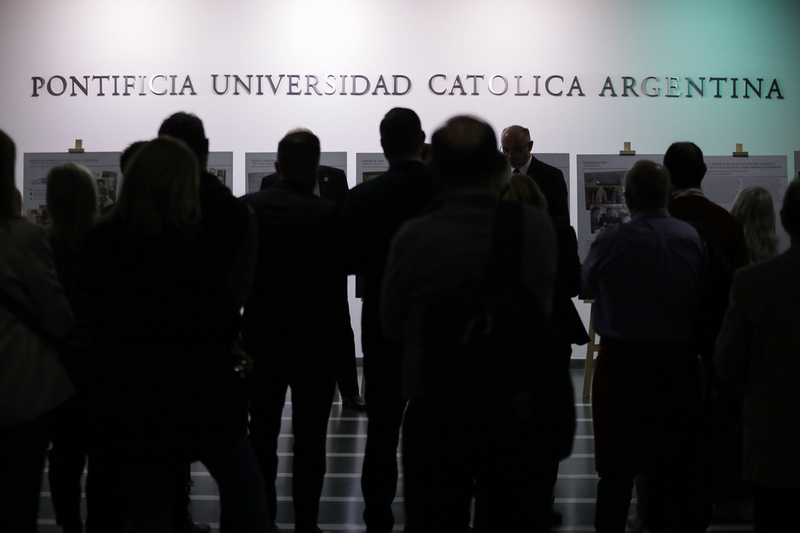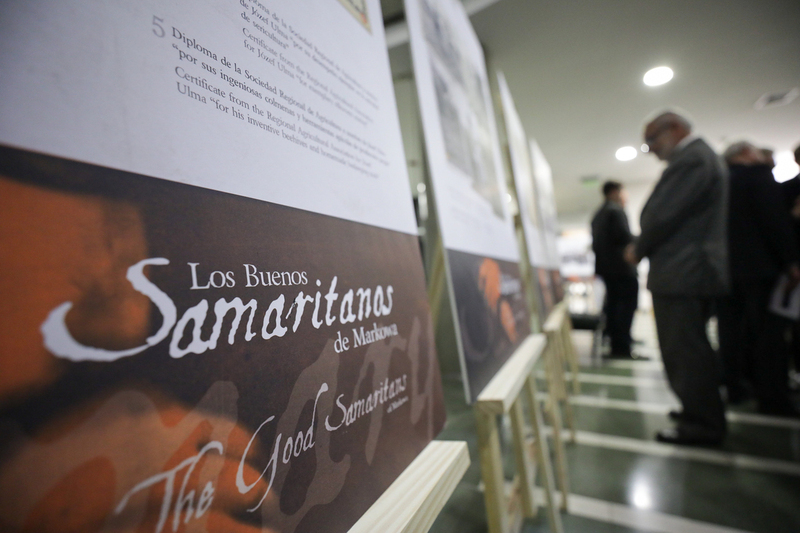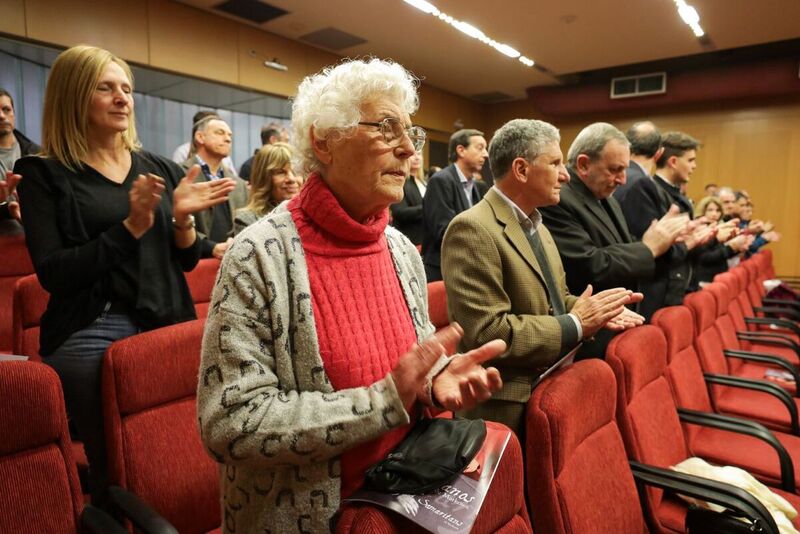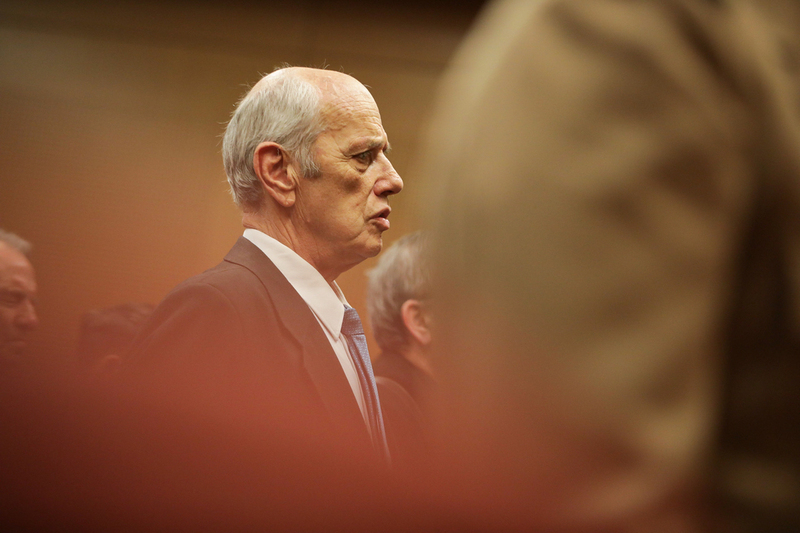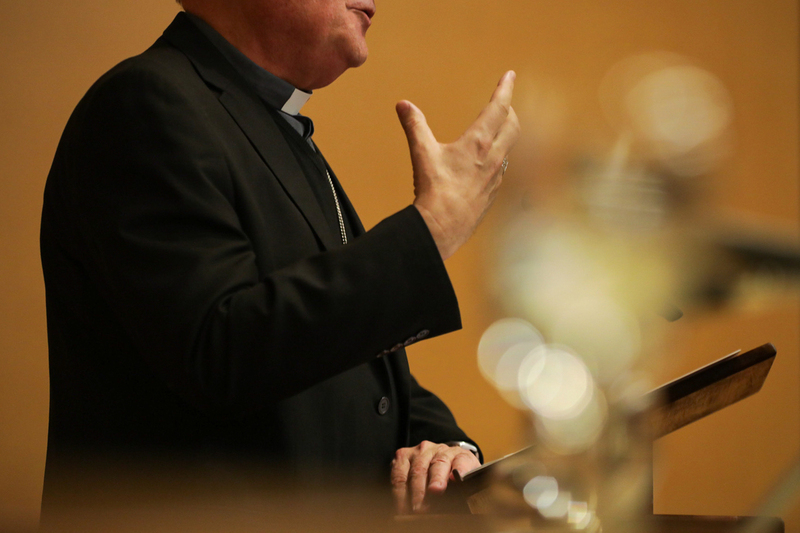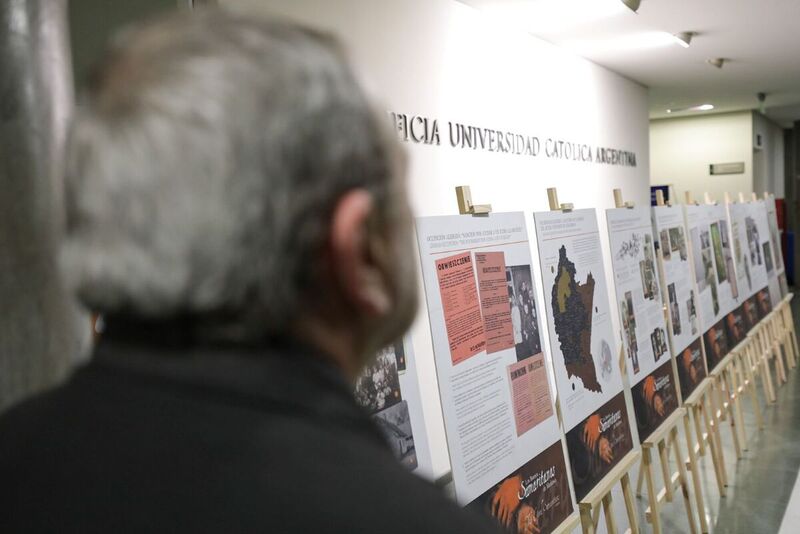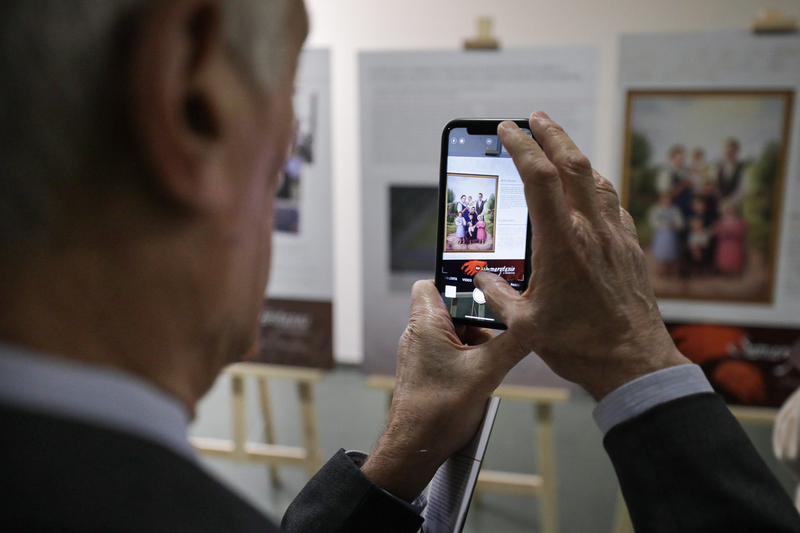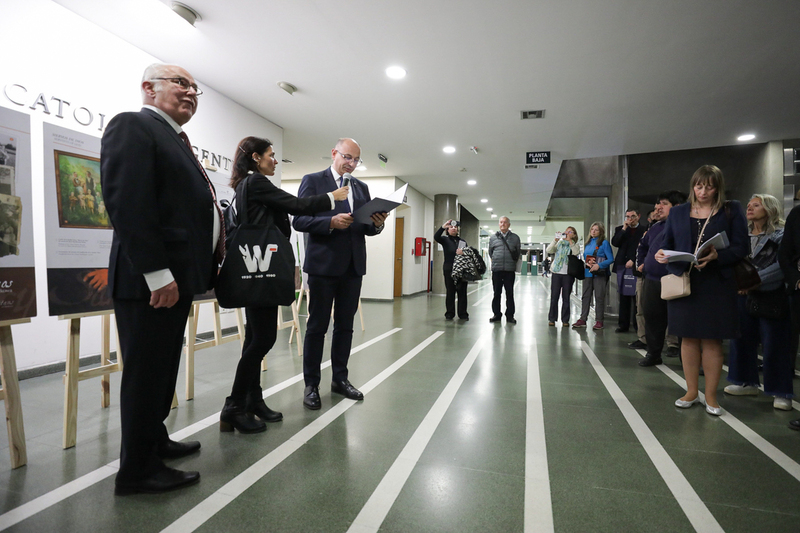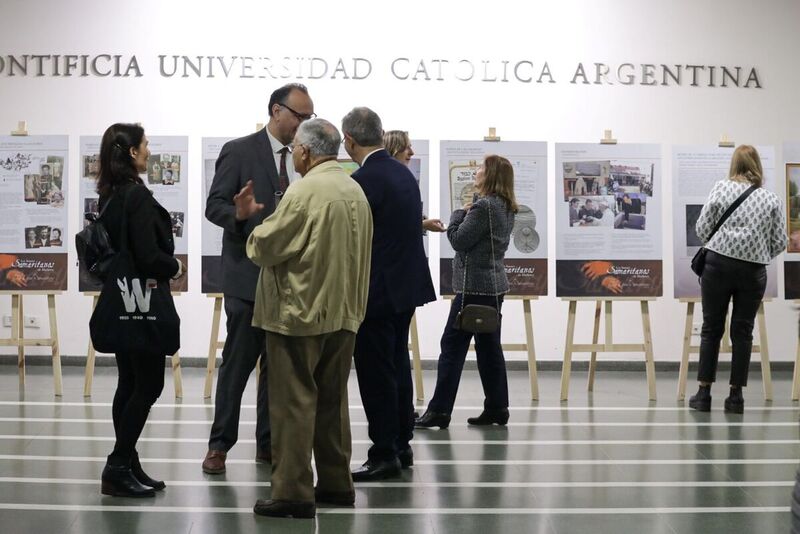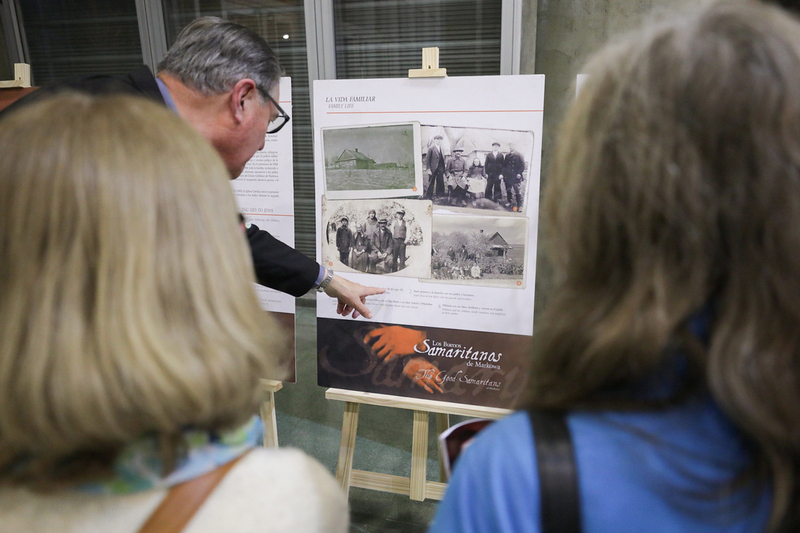The IPN President Karol Nawrocki, Ph.D. and Deputy President Mateusz Szpytma. Ph.D., participated in a unique cultural event in Rosario on 14 September – the opening of the "Samaritans from Markowa" exhibition. The display presents, among other things, documents and photographs illustrating the history of the Ulma family and the life of the Polish and Jewish community of Markowa.
A broad audience attended the event, which took place at the Catholic University of Rosario. The guests were welcomed by the host of the event, Dean of the University Luis Maria Caterina, Ph.D. The Polish Ambassador Aleksandra Piatkowska noted in her speech that the panels depict the heroic deeds of Poles saving Jews during World War II, and that the Yad Vashem Institute in Israel has honored many Poles as Righteous Among the Nations. She also stressed that this exhibition is of great importance for historical memory and the Polish-Jewish relations.
Thanking the hosts for their invitation, the IPN President Karol Nawrocki, Ph.D. noted that Argentina, like the Republic of Poland, is the homeland of many nations.
Before Poland lost its independence and disappeared from the map at the end of the 18th century, we took in refugees from around the globe. Now, as a result of a Russian-caused war, we are hosting millions of Ukrainians. The earliest Jewish settlements in Poland date back to the 13th century. Poland had its own "gauchos judios." Samuel Adalberg, a Jewish-Polish historian from the 19th century, referred to our nation as "a paradise for Jews." Indeed, our country became home to the greatest concentration of Jews in Europe at that time. They made up approximately 10% of Poland's population.
The IPN Deputy President Mateusz Szpytma, Ph.D., who is also a relative of the Ulma family, guided the guests through the exhibition. He noted that it’s title refers to a biblical parable about helping one's neighbor. "The Good Samaritans from Markowa" presents the story of Wiktoria and Józef Ulma, who risked their lives to save eight Jewish people during World War II. Józef Ulma, who was passionate about photography, captured the daily life of the family and the residents of Markowa. The exhibition also shows the Ulmas' social commitment, evidence of their deep faith as well as the family's tragic end at the hands of the German occupiers. Photos of the Jews they had sheltered and information about German repression were also presented.
The Ulmas were not the only ones. During World War II and the German occupation of Poland, we estimate that about a 1.000 Poles tried to save Jews and paid the ultimate price. Many stories of such help, however, had a happy ending. The title "Righteous Among the Nations," awarded by Israel's Yad Vashem Institute, has already honoured more than seven thousand of our compatriots – more than any other nationality. However, even this list is far from complete. Historians estimate that 100 000 or more Poles aided their Jewish neighbours. All these people continue to serve as an example of helping others and risking losing their own lives.
Professor Eduardo Sodero of the Department of Philosophy of Law gave a lecture in which he paid tribute to the Ulma family and reflected on the profound meaning of good and evil in historical and cultural contexts. He pointed out that the story of the Ulma family is a manifestation of the purest form of love. Although the outside world was full of hatred and cruelty at that time, Józef and Wiktoria Ulma continued to fight for values such as love, empathy and solidarity. Their decision to help the persecuted Jews reflected their deep faith and conviction in the value of human life.
During the opening of the exhibition "The Good Samaritans from Markowa" at the Catholic University in Rosario, Argentina, the President of the Institute of National Remembrance Karol Nawrocki Ph.D., also raised the issue of reparations that Poland is demanding from Germany.
In his speech, President Nawrocki stressed that only 10% of Auschwitz criminals were brought to justice, and that by 1982 only 7,000 war criminals had been convicted in Germany, of whom only 182 received life sentences. He recalled that many German torturers did not bear any criminal responsibility, continuing their political careers after the war had ended.
"Six million Polish citizens cannot be brought back to life, and it is too late to punish their murderers." - said the IPN President.
He also noted that despite the decision to pay reparations to the Namibian government for the murder of tens of thousands of its citizens in the early 20th century, the German government strongly opposes the obligation to pay war reparations to Poland.
For more information on the Ulma family see the website: https://rodzinaulmow.ipn.gov.pl/ule/
Read more in the IPN publications about the Ulma family
